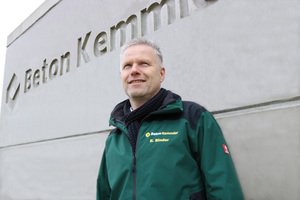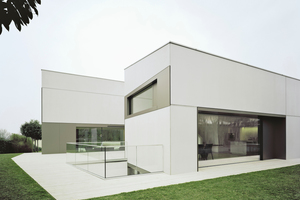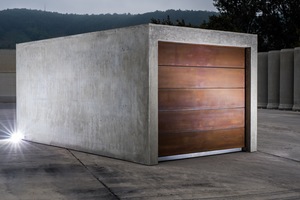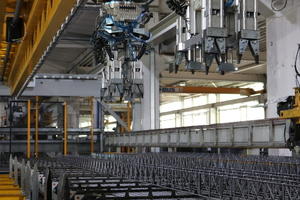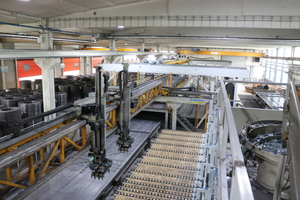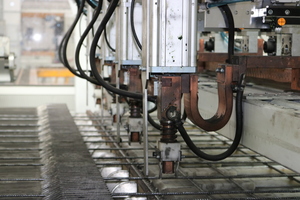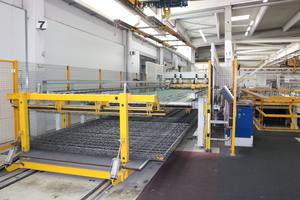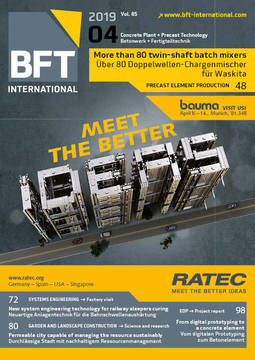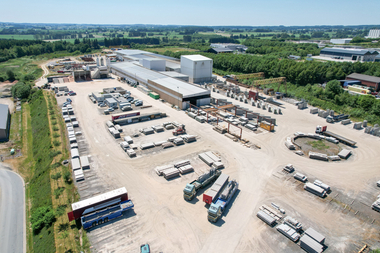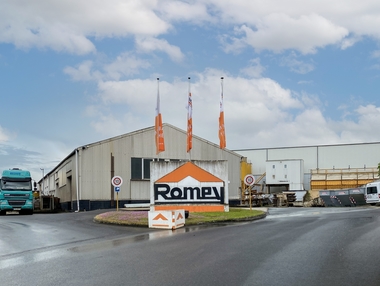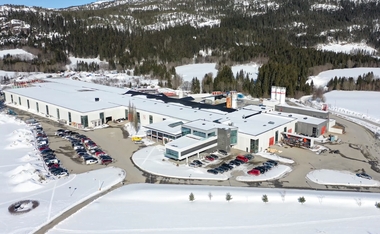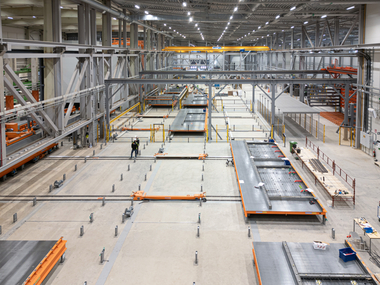A unique combination of family tradition and consequently applied culture of innovation
In the field of steel and reinforcement processing, a relationship based on mutual trust has been developed between family-owned company Beton Kemmler and the Progress Group, one of the leading suppliers of machinery and equipment to the precast concrete industry as well as the steel industry, over the years.
Over decades, the Swabian mid-sized sector has gained a quite special reputation as seal of quality of the German economy. Due to a unique combination of family-run management and a consequently applied culture of innovation, the Kemmler group of companies based in Tübingen near Stuttgart has managed to create a particular model for success with an excellent reputation far beyond Southern Germany.
Not only the company‘s internal striving for permanent improvement, but also the close cooperation with customers as well as the supply industry and partner companies are part of this culture of innovation. In the field of steel and reinforcement processing, a relationship based on mutual trust has been developed between Beton Kemmler and the Progress Group, one of the leading suppliers of machinery and equipment to the precast concrete industry as well as the steel industry, over the years.
More than 130 years of company history
The roots of the Kemmler group of companies go back to Michael Pflumm, who acquired a powder mill in Dußlingen at the gates of Tübingen in 1885 and extended the same to a production plant of concrete products. In 1908, his son-in-law, Johannes Kemmler, took over the plant, before Dr. Hans Kemmler managed the company, from 1939, through the Second World War and the post-war period. Peter Kemmler, who succeeded in the fourth generation in 1956, initiated a phase of strong growth. Since 2002, Dr. Marc Kemmler has continued the tradition of his family and further expanded the company by the foundation and acquisition of additional plants and factories – in a dynamic but sound way simultaneously and self-financed.
In this regard, the family-run Kemmler company does not pursue the common striving for short-term profit maximization. General manager, Marc Kemmler, explains: “The purpose of our company is to gain customers and to maintain their loyalty by performance and partnership. If we think and work in this way, then the essential profit will arise, too.“
Strong companies with great innovative power
Today, more than 1,800 employees generate revenues of more than 400 million euros in four business units: Kemmler Baustoff GmbH, comprising more than 23 subsidiaries, is a leading building materials and tiles specialist supplier in Southern Germany and Germany‘s largest private building materials supplier. Kemmler Industriebau GmbH is constructing and installing roofs and walls for hall buildings in Germany and abroad, while Kemmlit-Bauelemente GmbH is producing partition wall systems for changing, toilet and shower cubicles, for furnishing swimming pools and sanitary facilities across Europe.
In cooperation with important architects, Kemmlit is developing wall systems, that have already been honored with many awards regarding their design. On several occasions, Kemmlit was already elected into the circle of Germany‘s 100 most innovative companies. The fourth pillar of the group of companies, Beton Kemmler GmbH, producing precast concrete elements such as solid and double walls, precast filigree slabs and stairs as well as garages and pipes at the Tübingen-Hirschau facility, was awarded the Top 100 seal of approval, recently on May 04, 2017.
The key factors of the business success
Edwin Binder, who has been working with the company for 37 years, started his career as production manager at Beton Kemmler GmbH after his commercial education; he knows the company better than hardly anybody else. The success of the company is based on two key points: On the one hand, the fact that Kemmler is a family-owned company for which long-term development is more important than short-term profit.
On the other hand, the culture of innovative prevailing in all fields of the company with which the company has been concerned for a long time, even locally in Japan in other industries. “The Japanese word kaizen means continuous improvement,“ Binder explains. “We are trying to integrate this continuous process of improvement into our own climate of innovation. We want our employees to regard deficiencies as a chance and to provide for fast optimization.“ A culture of improvement being practiced every day is the decisive drive for innovation at Kemmler. „Such consequently implemented philosophy would not necessarily be expected at a concrete plant,“ Binder adds.
Examples of innovative power
There are many examples proving the success of this particular innovative power. “Recently we have achieved significant time and cost savings by our process improvements in material logistics,“ states general manager Martin Heimrich. To replace the previous individual storage areas, the company has built a central storage facility, from where a train carries the materials according to a sophisticated system to the production halls. “The workers get their materials at their work place directly, and thus they are able to concentrate on the production process thoroughly,“ Binder states with satisfaction.
Using cooperation consequently
For continuous product development, the internal project-related innovation teams of Kemmler work in close exchange with other manufacturers of precast products. Recently, one of the projects resulted in the minimization of thermal bridges in thermal wall. On the occasion of meetings for optimization with key customers, including building contractors and installation companies, the company permanently determines further options for redesigning products and processes. At present, they are preparing an internal customer advisory council for every product line, for example.
A strong partnership with Progress: Just in time
In cooperation with the Progress Group, a leading supplier of machinery and equipment to the precast concrete industry and steel processing industry, Kemmler was able to achieve a considerable improvement in efficiency in steel and reinforcement processing within the existing carrousel plant in the manufacturing process of precast concrete elements by optimizing the operating processes collectively over many years. If, in the past, the processes were strongly focusing on manual preliminary work and large material stores, it was possible to eliminate this almost entirely after the successful implementation of the plant modernization.
Just in time is the motto according to which the carrousel plant of the semi-precast slabs as well as the carrousel plant for precast walls in the existing factory halls have been brought up to date according to the latest state of the art quite recently.
About two years ago, Kemmler invested in a flexible Bluemesh mesh welding machine which could be integrated successfully in the existing production plant during ongoing operations and challenging space conditions. The outcome: Buffer capacities are no longer needed, the complete production process takes place just in time, perfectly adjusted to the reinforcement required for the structural component to be produced respectively in the carrousel plant. Moreover, the modernization of the existing Wire Center was implemented early 2019.
Long-term partnerships build confidence
Kemmler and Progress can look back on a long-lasting and successful cooperation. In 2000, Beton Kemmler GmbH already implemented the first mesh welding plant in the existing double-wall production. Binder is very satisfied with the cooperation: “Throughout the years of our cooperation, Progress always was fast, flexible, customer-oriented and ready for changes. Progress works very similar to us so that we time and again have decided for a cooperation with Progress.“
The future of modern reinforcement machinery
Even if Kemmler is very satisfied with the projects implemented in steel and reinforcement processing, „like Progress, we try to think ahead further than others,“ Binder adds.
We focus on an even more efficient manufacturing process in the future, the further development towards a „factory 4.0“, in particular, as far as maintenance is concerned. “If we were able to achieve together with our partner an automated preventive maintenance of our machines,“ Binder says, „we would have reached another milestone in our striving for continuous improvement. We are glad that Progress is already thinking and working in this direction so that we will be able to reach our common goals hopefully soon.“

